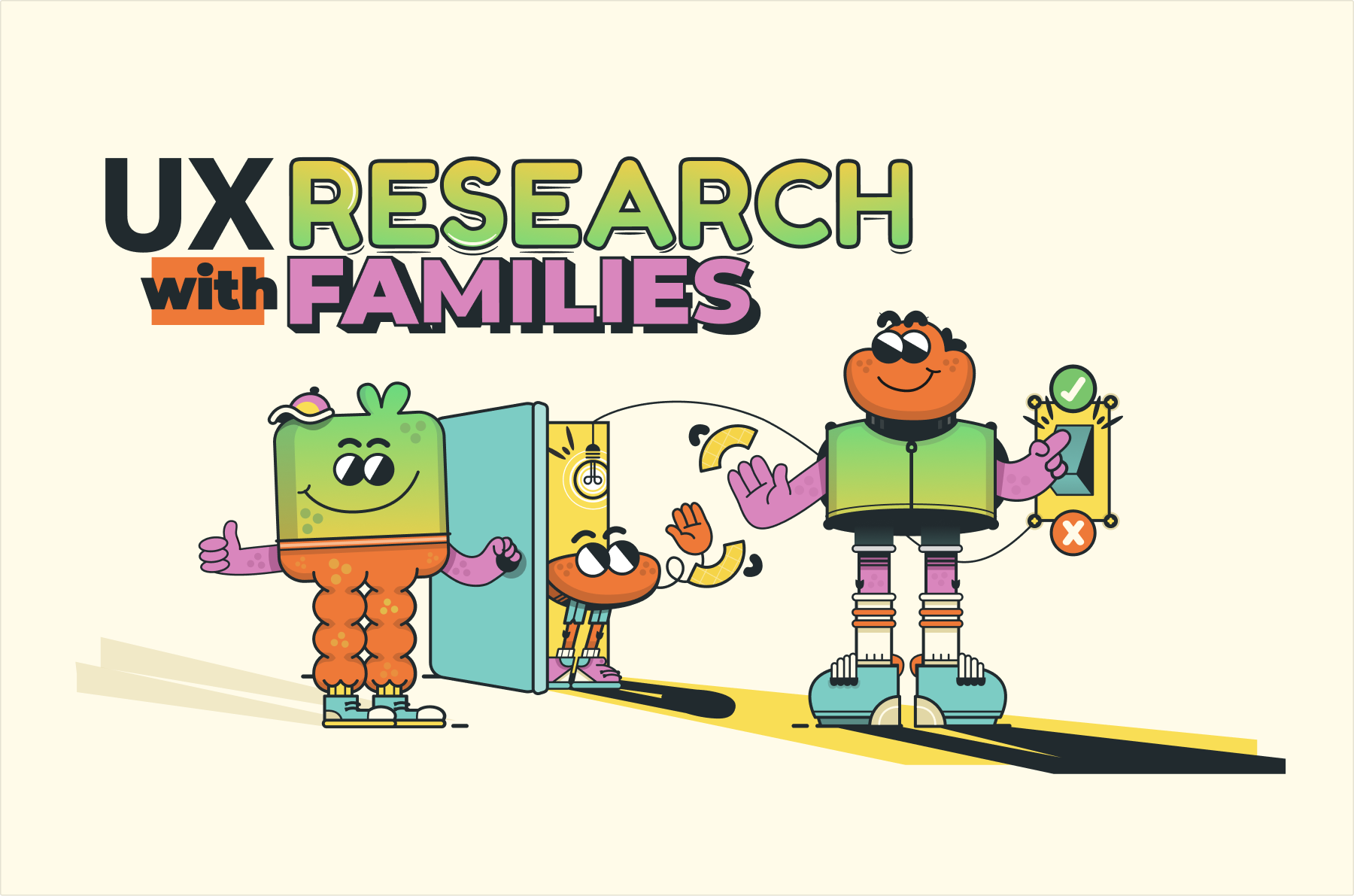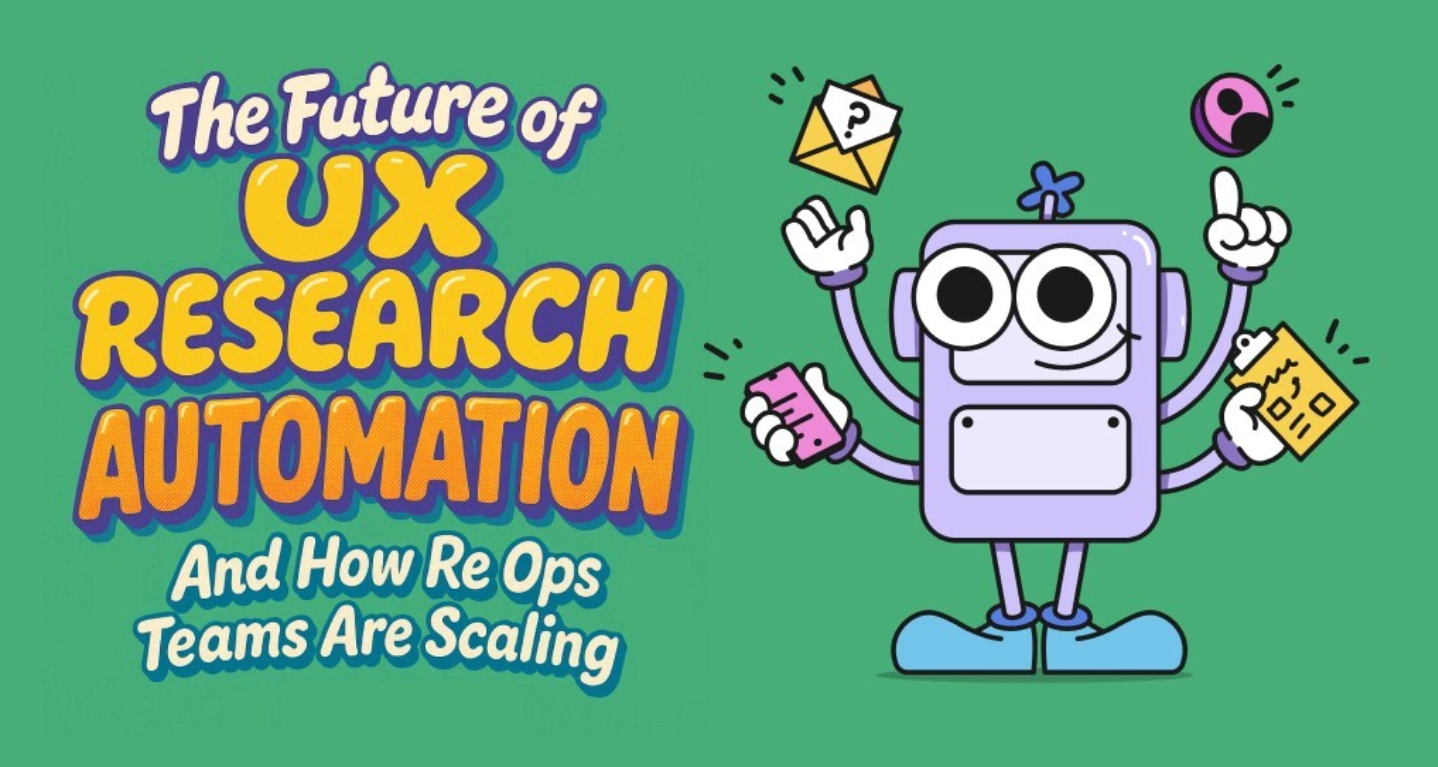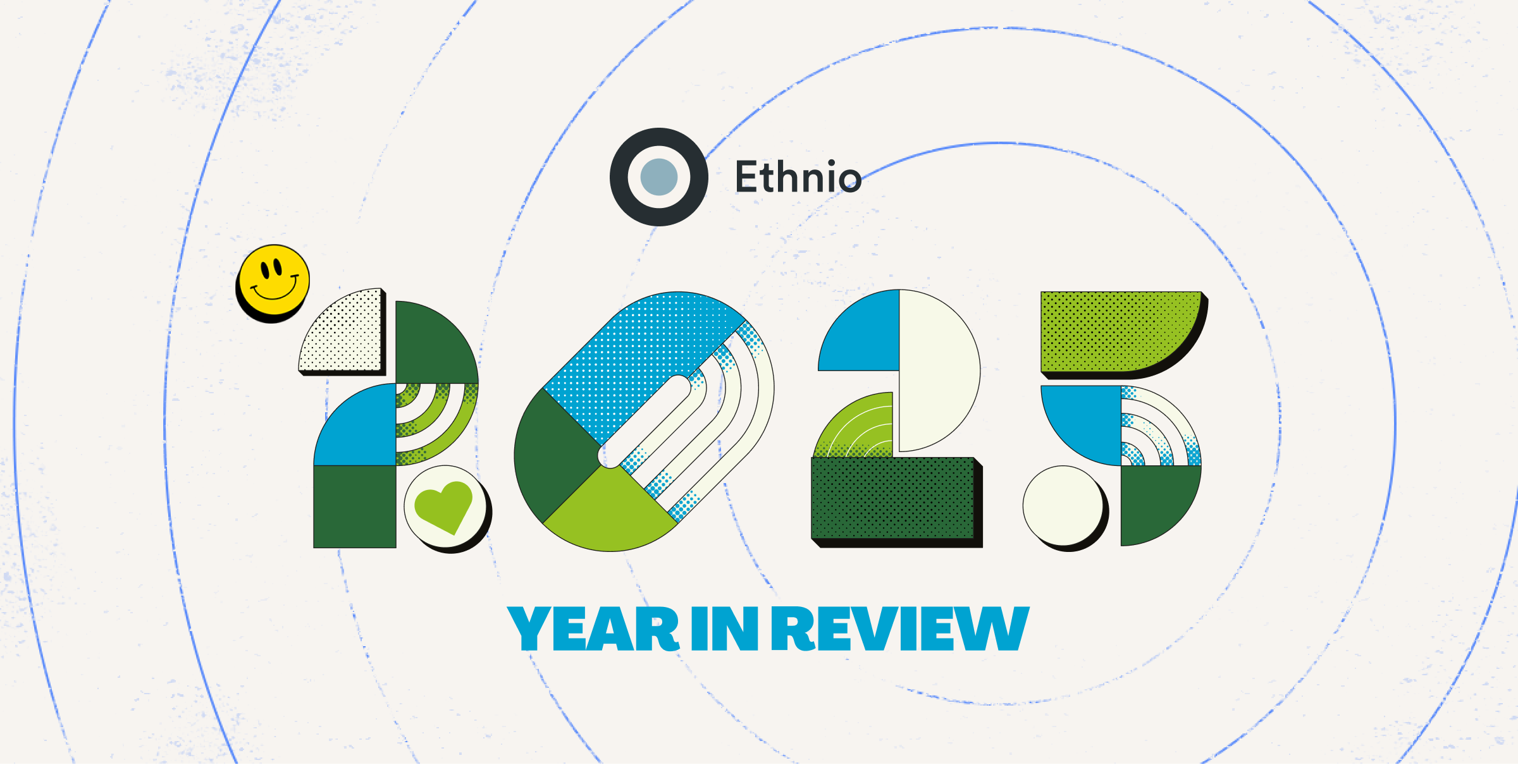If you’ve been in the user research field for any amount of time, you know it’s full of acronyms, initialisms, and changing titles.
UXR, UX research, user insights, user experience research, ux researchers who report to a CMO, researchers who report up through the head of product, designers who do their own research at startups but have a Masters in HCI – the qual and quant research world have a wild entanglement of job titles. The job boards literally show them all.
It's ironic. User researchers aspire to create terrific user experiences. That’s what we do. But what we have done with our own terminology is a mess.No surprise then, that the operational backbone of UXR—Research Operations—also has its own alphabet soup: ReOps, ResearchOps, ResOps. With a roster of titles such as Program Managers, Recruiting Coordinators, Research Assistants, there are as many ways to say it as there are roles in the field.
But zoom out, and it all boils down to one goal: making research more impactful at scale. This is exactly how we measure Ethnio’s impact for enterprise teams, and what our tools are designed to support. In many ways, we like to think of ourselves as an extension of your team—stepping in to streamline participant management, recruitment workflows, compliance, and scheduling—all within an easy-to-use research CRM. We handle the logistical “fun” that keeps research organized, compliant, and secure.
But don’t worry, we didn’t write this blog to talk about ourselves (okay, maybe just a little — so whatever your job title is…if you need support streamlining your research ops, click here to schedule a demo).
Now, onto the heart of the matter, this post explores how Research Operations roles are evolving, what’s driving these changes, and why they’re essential to modern research teams. We’ll answer key questions with firsthand insights, including:
What titles exist within the ResearchOps landscape?
How does democratized research impacts operational frameworks?
What transferable skills support ReOps success?
What signs indicate an org is ready to invest in dedicated ResearchOps roles?
Let’s jump in…
Starting with… what sparked the need for ReOps roles?
At the risk of stating the obvious, the rise of ResearchOps closely mirrors the growth of UX research itself. As digital products boomed, consumer expectations for seamless experiences surged, driving demand for user-centric insights. Managing research at scale is no small task (which, frankly, is why we built Ethnio - the first user research CRM built by researchers).
ResearchOps enabled teams to focus on insight generation rather than logistics. By managing participant recruitment, governance, knowledge sharing, and more, ReOps roles became the operational backbone of modern research teams.
For those already in the field or entering it, ResearchOps continues to evolve, offering new opportunities to redefine how research impacts organizational success.
Core functions of ResearchOps
Scaling research requires addressing several interconnected components. As Stephanie Marsh highlighted in her talk "Let’s Start Talking About ResearchOps as a Craft" at ROC2023, when the logistics are handled, everyone is happy. But things change when you have to tell stakeholders that a process cannot move forward due to GDPR compliance or that recruitment will take longer because consent protocols aren’t in place. ResearchOps makes sure critical tasks like these don’t fall through the cracks - protecting scalability, security, and alignment.
The core functions that structure and scale research include:
Participant management
Recruiting, screening, scheduling, and compensating research participants—often the first function that comes to mind in ResearchOps. Maintaing participant recruitment is inclusive, diverse, and compliant with ever-changing data privacy regulations.
Governance
Establishing processes and guidelines for consent, data privacy, and data storage that maintain trust with users and partners.
Knowledge management
Building systems to collect, interpret, and share insights, typically through centralized repositories, making findings accessible and actionable across teams.
Tools
Overseeing the tools and platforms in the research tech stack are properly integrated and aligned with research goals.
Enablement
Training researchers and non-researchers alike (e.g., designers, product managers, marketers) through guides, templates, and onboarding.
Communication & advocacy
Positioning user research as a strategic driver of success, fostering communication where findings are shared, discussed, and integrated into decision-making across teams and leadership.
Other elements, like budget management and vendor coordination, play a role too. These are the day-to-day details that make or break a research project.
What impact have recent events had for professionals within the space?
The disruptions of the past few years—including the pandemic, mass tech layoffs, and the broader "Great Reckoning"—have fundamentally reshaped research operations. The pandemic accelerated the shift to digital workflows, highlighting the need for more strategic oversight in research operations. Despite reduced headcounts, the demand for actionable insights grew, forcing teams to become more strategic with their time, tools, and talent. With fewer resources, the message has been clear: do more with less.
The tech world is undergoing significant changes, such as the end of seemingly unlimited startup capital, pandemic-driven downturns, and the unpredictable impact of AI on work processes.
In this new landscape, ResearchOps professionals are playing a pivotal role in adapting to these shifts by moving beyond administrative tasks to create systems that enable long-term scalability. Their work ensures that research aligns with broader business objectives and is measured in terms of time, revenue, and growth—the language that resonates with leadership.
In response to these changes, several key trends have emerged:
stricter data privacy and compliance regulations.
the ongoing democratization of research.
increasing importance of metrics to justify research impact.
the rise of remote and hybrid work models.
Notably, the 2022 State of User Research Report revealed that 22% of researchers now have dedicated ResearchOps support and report significantly higher job satisfaction. Reinforcing that the ResearchOps function is still essential for research teams today.
Does this change how ResearchOps job titles vary across orgs?
Given the growing strategic importance of ResearchOps, we reviewed recent data from ZoomInfo, which shows that there are currently over 13,869 individuals in roles related to ResearchOps as of 2024.
Amongst them, we found common titles for ResearchOps roles that typically fit the description such as:
Research Operations Manager
Research Operations Specialist
Research Operations Coordinator
Research Operations Lead
Recruiting Coordinator
Participant Coordinator
One title we've been seeing more often recently is Research Operations Program Manager. We’re coining them ROPMs ( you can add that to your UXR dictionary).
With research enablement and self-serve research on the rise (another two hot topics buzzing in conversations), we’re placing our bets that many roles supporting the ResearchOps function are being created, even if they don’t carry the official title. These roles, though not always formally recognized, are still crucial to the success of ResearchOps.
ReOps is still an emerging field.
So, how do evolving roles and titles support ReOps functions?
As research teams scale, ResearchOps professionals are increasingly taking on strategic roles focused on research enablement and self-serve research. This evolution is driven by the need for more agile and efficient workflows, especially when researchers are managing multiple projects or when teams are growing rapidly.
Let’s spotlight Research Operations Program Manager to answer this one. With the rise of automation in research tooling, ResearchOps professionals are turning their focus on managing tools, optimizing processes, and scaling operations.
As Tarik Arslan, a Research Operations Program Manager with experience at Asana and Google, highlights in his blog, automation will continue to shape ResearchOps as a strategic backbone of user research:
Automating not only saves time and energy, but it also aids in democratizing research, eliminating errors, and creating a better experience for everyone—your research team, stakeholders, and most importantly, your users.Tarik outlines how a scalable recruitment process is made possible through a user research CRM, such as Ethnio, to automate tasks like participant imports and opt-out management. By centralizing participant data, teams can drastically reduce manual workloads and avoid delays, and quickly access the right participants. This minimizes participant fatigue and improves study quality, ultimately allowing teams to focus on high-impact, strategic work that drives business forward.
Additionally, Tarik stresses that high-quality participants are more valuable than sheer volume. With the right tools, ResearchOps professionals can manage participant data with tagging and categorizing based on behaviors and demographics. Standardizing practices for participant tagging and data tracking further scales operations, allowing teams to move faster as they grow.
For a deeper dive into how automation and panel management software, like Ethnio, can streamline your research ops, see Tarik’s full blog.
Is automation reshaping what roles are needed within ResearchOps?
We’d say that automation doesn’t replace the need for human expertise in ResearchOps—it amplifies it.
Take Tim Toy, Research Operations Program Manager at Adobe, with over 16 years of experience across companies like Adobe, Electronic Arts, and Airbnb. His team supports the operational backbone for 65 researchers across Adobe's Design Research & Strategy Team (ADRS), managing everything from process optimization to tool integration and compliance.
For Tim, the true value of automation goes beyond saving time. He highlights how many manual tasks—like pulling customer lists, sending screener questionnaires, and tracking research studies—can be automated, freeing up valuable time for more strategic work and advancing the overall practice. Check out the full blog on Adobe’s website.
How does ResearchOps grow alongside the democratization of research?
Both of these spotlights of UXR voices emphasizes the alignment with research with long-term business objectives.
As research tools and resources become more accessible, those outside traditional research teams—such as designers, product managers, and marketers—are increasingly conducting their own research. This shift is central to research democratization, where multiple roles contribute to data collection, interviews, and testing, often using a variety of disjointed platforms.
With more contributors, operational challenges increase. Scaling research across teams requires coordination, maintaining data integrity, ensuring compliance, and standardizing processes.
Brad Orego, Head of Research at Webflow, is leading an initiative to establish self-serve research capabilities across the company. In a recent Learners Research Week AMA, Brad shared his vision for a system where anyone—from designers to product managers to marketers—can run research independently.
To support this, Brad is hiring a Research Program Manager who will focus on optimizing workflows, creating standardized templates, automating tasks, and managing cross-team collaboration. For Brad, enabling self-serve research requires a balance between the right technology and an effective operational strategy.
Rather than debating who should be the ultimate arbiter of research, the focus should be on how teams are structured. Should researchers be embedded within product and design teams or work as a separate unit?
When insights professionals collaborate on solving customer problems, rather than fighting over whose research is "right," they gain more influence and relevance. This is where ResearchOps becomes critical—either acting as the glue that ties everything together or enabling teams to take greater ownership of their processes.
Do job titles matter for your team’s success, or are responsibilities what really define the role?
If you’ve discovered that your role includes tasks like those mentioned in this article, you may already be functioning as a research operations professional—whether or not your title reflects it!
For example, a former Director of Portfolio Research & Insights at Dropbox recently transitioned into a Product Manager role following a workforce reduction. Despite the title change, Andrew Warr highlighted how his research background remains central to his approach:
Am I leaving research behind? Not at all! My research experience will be a foundational part of my approach as a PM, keeping me focused on delivering a customer-centered product experience and grounded in a deep respect for the research discipline.Similarly, Vrinda Bhagat, a UX Project Manager, offers a compelling example where her title doesn’t explicitly include ResearchOps, yet many of her responsibilities align closely with its core functions.
Here’s a snapshot of the key operational tasks she supports at every stage of a research project:
Research Set-Up
Ensuring all stakeholders—whether researchers, designers, or others—have access to the necessary resources. This includes setting up shared repositories for research documents and coordinating with vendors to ensure a standardized and accessible process.
In-Field Research
Once research is underway, monitoring data quality becomes essential. With more people involved, operational support is necessary to track participant quotas, ensure data integrity, and troubleshoot issues as they arise.
Research Wrap-Up
After data is collected, wrapping up the research involves ensuring participants are incentivized, vendors are paid, and data is delivered in the required formats.
As the democratization of research continues, providing the operational strategy necessary to scale research efforts becomes key to team success—regardless of your LinkedIn title.
What skills transfer into ResearchOps?
Navigating a career in ResearchOps often feels like charting unexplored territory. This role is centered around process improvements, problem-solving, and facilitating collaboration across teams. The real value of ResearchOps lies addressing bottlenecks, managing logistics, and ensuring smooth operations. While many professionals come from UX research backgrounds, individuals from a variety of fields—such as project management, human resources, pharmacy, and paralegal work—bring unique skills that enrich the field.
There are research-specific project and program management skills that are essential.
Core skills for success
ResearchOps professionals combine strategy, operations, and people skills to support research teams. These skills are essential in the daily tasks of ResearchOps:
Project Management: Managing multiple projects, coordinating with cross-functional teams, and ensuring timely execution.
Data Analysis: Understanding how to interpret and analyze research data to support the broader research efforts.
Human Resources: Expertise in recruiting participants and managing relationships with vendors.
Design Support: Assisting design teams with research setup, testing, and ensuring insights are integrated into the design process.
Additional transferrable talents
Beyond these core competencies, certain additional skills will enhance a ResearchOps professional's impact:
Project Execution: Taking on valuable projects and executing them efficiently.
Impact Tracking: Demonstrating and tracking the impact of your work across the organization.
Cross-functional Collaboration: Facilitating cooperation between departments like Design, Product, IT, and Engineering.
I think this stereotype is widely promoted due to job postings and job descriptions. You’ll find that the majority of ReOps jobs have recruiting and managing participants as a core part of the role, but most ReOps professionals do much more.
Here are the key skills and capabilities that drive success in ResearchOps:
The essential ResearchOps skill set
Recruiting Expertise
Project Management Fundamentals
Research Scoping
Budgeting
Vendor Knowledge
Knowledge Management
Socialization and Communication
Process Improvement
Program Management
Flexibility and Agility
Becoming a strategic partner that ensures that research insights are efficiently gathered, shared, and acted upon across the entire organization.
What signs indicate an organization is ready for ResearchOps?
When researchers are juggling every aspect of the process themselves, it's difficult to maintain the level of energy, excellence, and attention to detail that research deserves.
Therefore, we continue to see growing demand for strategic roles within ResearchOps, especially as teams scale and seek more sophisticated ways to manage research across geographies and disciplines.
Investment in research operations is an explicit recognition of the value of research practices.
As the first-ever Research Operations (ResearchOps) Program Manager at H-E-B in 2022, a $38 billion grocery chain with over 400 locations, Alyssa Lucio’s journey has provided invaluable insights into what it takes to establish and scale a ResearchOps function.
Through her experiences at companies like Google, Indeed, and now H-E-B, Alyssa shares the key signs that indicate an organization is ready for a dedicated ResearchOps function. Check out her full interview with Center for Human Insights.
Here are some key signs that indicate an organization is ready for ResearchOps, with insights from Alyssa’s journey:
Lack of Standardized Processes Across Teams
At H-E-B, Alyssa established ResearchOps frameworks designed to manage these complexities. She developed templates, guides, and resources that enabled non-researchers—such as designers and product managers—to run their own research projects.
Desire to Scale Research Across Teams
At H-E-B, she created playbooks and templates that made it easier for these teams to conduct research without needing a dedicated researcher on every project. This approach not only saved time but also enabled H-E-B to gather more insights across a wider range of teams. This balance between empowerment and quality control is a central tenet of Alyssa's ResearchOps approach.
Time-Consuming Administrative Tasks
Alyssa noticed that researchers were spending too much time on administrative tasks such as budgeting and scheduling. ResearchOps addressed these issues by handling logistical work, allowing researchers to focus on their core responsibilities of generating insights.
Having a dedicated role within a research function that’s focused on enabling scalable research practices, cross-team collaboration, and process optimization may be the key to the next phase of your organization’s growth.
You’ve made it to the finale…
So it’s safe to assume you understand the value of user research CRMs, like Ethnio, and would like to automate tasks such as participant recruitment, scheduling, and incentive management?
We can’t wrap up without giving a nod to the key players in scaling research. Whether you’re a researcher, a manager, or someone supporting research from another department, this exploration of ResearchOps trends shows how much the field is evolving—and how pivotal it will be for the success of any customer-centric organization. Whether it’s improving recruitment when samples are hard to reach or ensuring users are comfortable during sensitive research on topics like accessibility.
And we are here to empower with tools for automating administrative tasks, improving participant recruitment, and centralizing data management.





